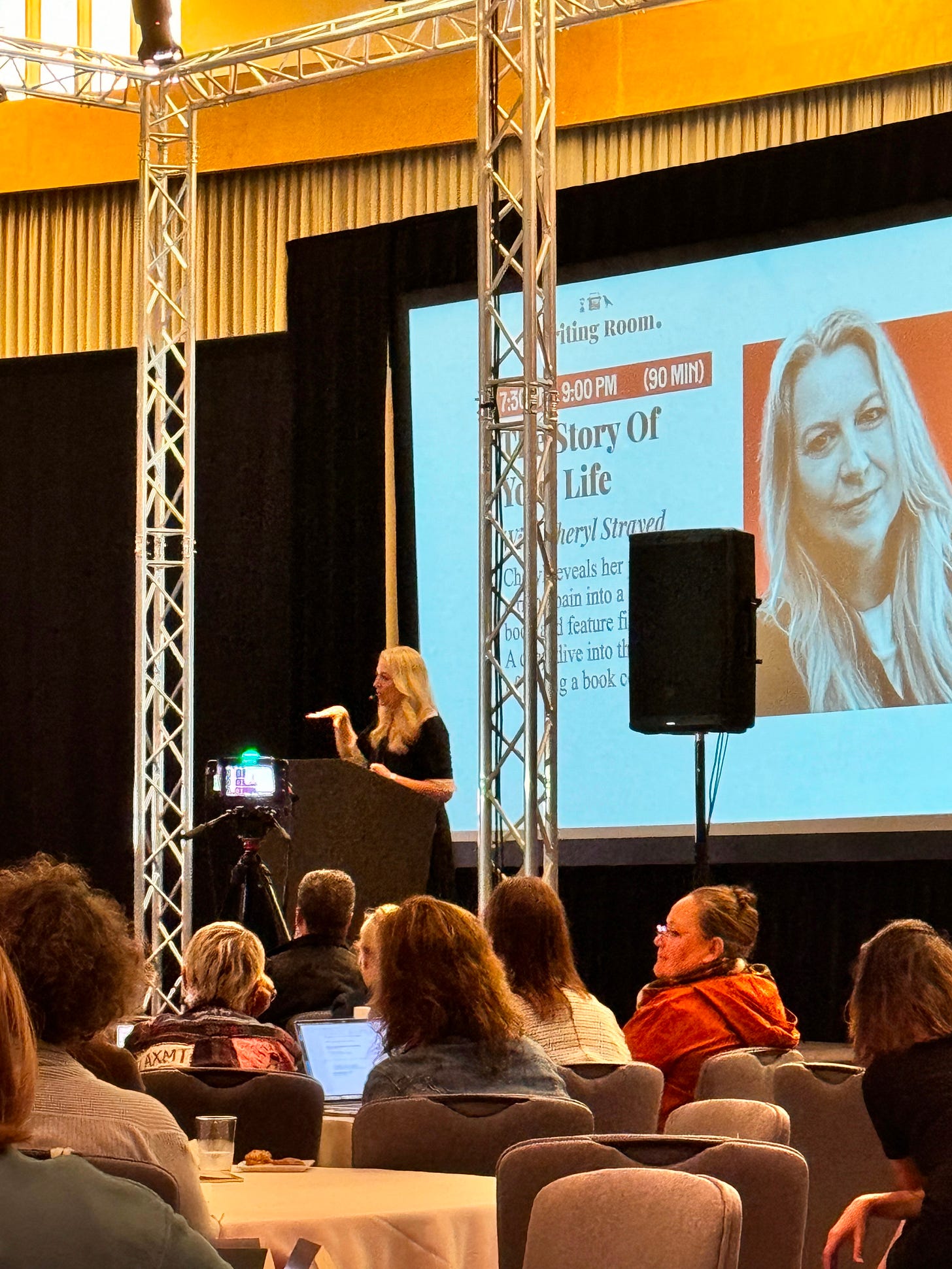Quotes from Cheryl Strayed Every Writer Should Live By
Live from the A Writing Room Collective 2024 conference in Hollywood

I’ve come to learn to live my life boldly, loudly, and unapologetically, so this past Thursday, I found myself in Hollywood for the A Writing Room Collective workshop. I came for multiple reasons (Anne Lamott …
Keep reading with a 7-day free trial
Subscribe to Creative Editing for Authors to keep reading this post and get 7 days of free access to the full post archives.
